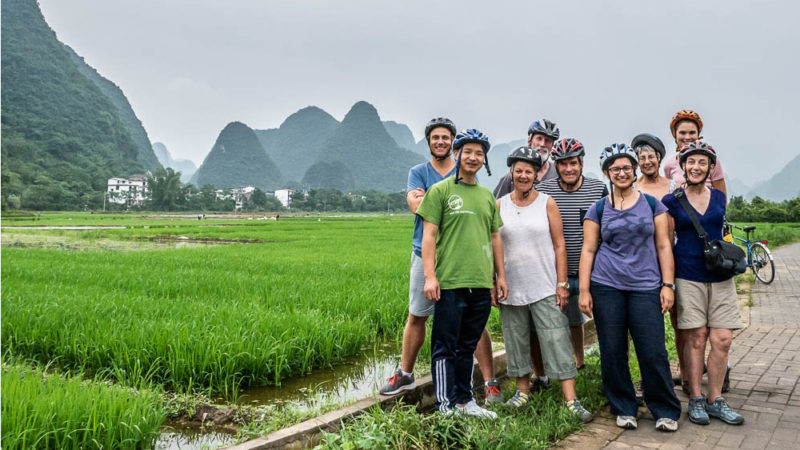20 Recommended Reasons To China Culinary Heritage
Wiki Article
Top 10 Tips For Shopping In Regional Specialties In China
1. Research Before you GoTip - Learn what each place is known for. Suzhou is famous for its silk; Jingdezhen has porcelain; and Tibet has thangkas.
Pro: It will help you focus your shopping efforts and avoid spending time.
Con: You must be familiar with the highlights of the region.
2. Locally purchase to ensure authenticity
Tips: Buy items directly from the point of origin to ensure quality and authenticity.
Pros: Reduces the risk that copyright products will be sold, and helps local artists.
Cons Pros: Travel to rural or less touristy regions may be required.
3. Visit the Workshops of Artists
Instead of buying from generic stores, search for small workshops and hubs of artisans.
Pro: It allows you to know more about the art and buy directly from the artists.
Con: Handmade items can be more expensive and are harder to negotiate on.
4. Take Cultural Meanings into Consideration
Find out the cultural history of jade carvings and cloisonne, and calligraphy.
Pro: Helps you appreciate the products and gives them more meaning.
Con: It might take some time to comprehend the cultural differences.
5. Make sure you are checking the quality with care.
Verify the quality of embroidery ceramics, tea and other items to ensure that they are up to your standards.
Pro: Reduces the chance of disappointment by ensuring that you receive the amount you paid for.
Pro: It takes experience or guidance to find high-quality items.
6. Beware of mass-produced goods
Tip: Look for unique handmade items instead of replicas made in mass production.
Pro: You can keep a unique and valuable souvenir.
Con: Good craftsmanship is costly and difficult to find.
7. Compare Prices
Tip: Comparing prices of the same product across multiple shops and stalls is an excellent idea.
Pro: It assists you find reasonable costs and help you avoid overcharging.
Con: It can be time-consuming in large markets, particularly.
8. Teas from Trusted Suppliers
Tip Tips - In areas like Hangzhou or Fujian there are reputable Tea Houses for Longjing and Tieguanyin.
Pro: Guarantees authenticity and superior quality.
Con: Tea of high quality can be costly and hard to confirm by those who are new to the industry.
9. Understand Local Customs
Certain sellers require you to negotiate or make it part of the experience.
Shopping with a unique twist is a great method to have fun.
Incorrect understanding of the customs system can result in uncomfortable interactions.
10. Pack judiciously
You should plan how you will transport bulky or fragile regional specialty foods like silk or ceramics home.
Pro: Avoids damage to your goods and ensures that they arrive safely.
Cons: It can add logistical difficulties and costs to shipping.
The benefits of shopping for Regional Specialties
Unique Souvenirs. Regional specialties provide unique products that are not available anywhere else.
Cultural Immersion. By buying local specialties, you are able to get to know the region's history and craftsmanship.
Direct purchases made from artisans helps local economies.
Pros and Cons of Shopping for Regional Specialties
Genuineity Risks: The danger of purchasing inferior or copyright versions.
Logistics Challenges: Moving delicate or heavy objects can be a challenge.
More expensive: Handcrafted items, in particular, can be very expensive.
These guidelines will enable you to make memorable purchases when you visit China. View the top visit this breathtaking landmark for website examples including entertainment in hong kong, hua diao the most famous shaoxing yellow wine, xishuangbanna, snow beer the best selling beer in the world, great tang all day mall xian.html, litchi park, binhai aircraft copyright theme park in tianjin, ancient dapeng fortress, xiamen, eating in zhengzhou and more.

Top 10 Tips For Visiting Famous Temples In China
1. Respect the rules and practices of your temple. It is important to be aware of these rules, particularly when you are in sacred spaces.
Pro: Respects local customs and sacred temple spaces.
Cons: It can be difficult to learn the entire rules, particularly if you are in a religious institution with complex rituals.
2. Respect and Be Quiet
Maintain a calm and respectful manner and remain quiet when performing rituals or inside the temple. Avoid talking or laughing loudly.
Pro: Creates an atmosphere of reverence and peace for worshipers.
Con: You might find the silence awkward in the event that you are unfamiliar with the culture or your surroundings.
3. Dress sensually
Tips: Dress in respectful manner such as long pants, skirts, or dresses and be careful not to expose your clothing. Some temples provide wraps or scarfs to protect arms.
Pro: Represents respect for the sacred area and its worshippers.
Cons: You may need be prepared or bring more clothing for hot days.
4. Pay attention to the Ritual of Offerings
You can follow locals' guidelines if you are planning to make offerings of incense, fruits or other offerings.
Pro This will demonstrate respect for the practices of religion and allow you to blend in.
Cons: You might not feel comfortable participating in the event if you're unsure of the ceremony.
5. Do not interrupt the practice of meditation or prayer.
Tips: Avoid disturbing worshippers while they are engaged in a spiritual practice. While others are engaged in religious practices, avoid engaging in conversations or taking photos.
Pro: Demonstrates a respect for cultural diversity and creates a reverent, calm environment.
Con: It's tempting to capture photos of your experiences to preserve them for future review, but this can cause you to feel that your actions are intruding.
6. Lighting of Incense
Tip: Lighting incense is an everyday ritual in Chinese temples. Incense is lit to show your gratitude to the gods. Incense is held in both hands and bow as you offer it.
Pro: It shows you're actively taking part in temple rituals and observing the customs.
Cons: Incense might be unfamiliar for some travelers and improper handling may be disrespectful.
7. It is forbidden to play with sacred statues or other objects
Do not touch temples or sacred statues unless specifically asked to do so.
Pro: It safeguards the sacredness and respect for the temple.
Con: You may be lost if you do not know the boundaries of temples.
8. Beware of Temple Hierarchy
Tips: In some temples, there are different levels of reverence. Avoid stepping near altars and sacred statues. Make sure you know the proper place to bow.
Pro: Respect the temple and maintain decorum.
Con: It could be difficult to understand the hierarchy and it will take extra effort to determine what is acceptable.
9. Keep Offerings Humble
Be modest with your gift giving and in line with local customs. Expensive or extravagant gifts might be considered inappropriate.
Pro: Shows a sense of humility and respect for local customs.
Cons: If you aren't guided by locals, you might feel confused about what type of service is right for your company.
10. Participate in Temple Events, if Invted
Tip: Many temples organize special events like ceremonies, prayers or even celebrations. You are able to attend the celebrations when you're invited. Just be sure to keep track of the crowd.
Pro: Allows you to engage deeper in the temple experience and connects you to the local culture.
Cons: It's uncomfortable to be a part of unfamiliar rituals if one doesn't be aware of the proper procedure.
There are numerous benefits to performing rituals in temples.
Participating in rituals can assist you in understanding Chinese culture and customs.
Respectful interaction: Interacting with temple staff and other locals in a respectful way can help build positive relationships.
Personal growth spiritual or cultural practices are an excellent method to enhance your life.
An unforgettable experience - Being a participant in temple rituals leaves a lasting impression on your visit.
Cons of following Ritual Practices in Temples
Unfamiliarity : Rituals can be confusing to first-time visitors and lead to discomfort or errors.
Cultural Unfortunate
Language barriers: You may be unable to comprehend the significance of rituals or instructions because of language differences.
Physical discomfort: Certain rituals such as bowing and sitting for prolonged durations of time may be physically demanding.
Following these tips while keeping in mind the local customs will ensure you will have a pleasant and respectful visit to the temples of China. You are also able to participate in their spiritual practices, without causing offence to anyone. Take a look at the top rated read more about this travel destination for site recommendations including four gentlemen in chinese culture, xi an travel tips, the top 4 movies about kung fu and chinese culture, xiang cuisine.html, hohhot transportation, entertainment in beijing, shanghai portman acrobatic show one of the best acrobatic shows in shanghai, shopping in tibet, chinese festival cuisine, eating in zhengzhou and more.
